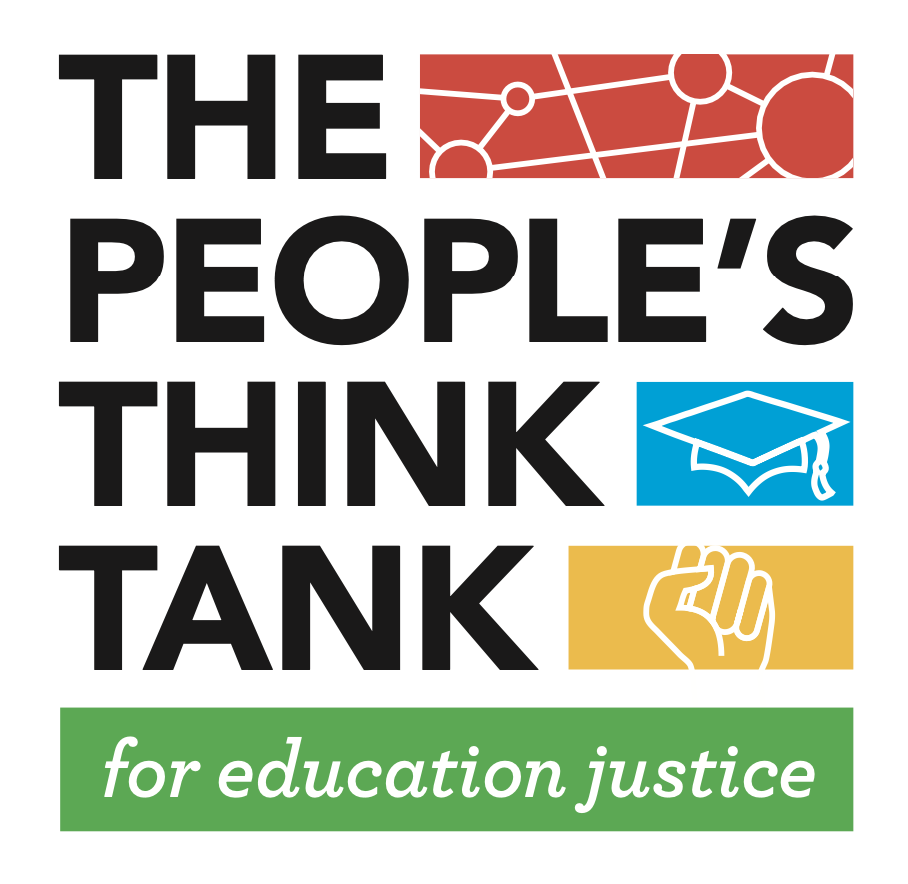< back to The Newest Abolitionists
Named the Newest Abolitionists in honor and homage of the Student Nonviolent Coordinating Committee (SNCC) in the 1960s, the project is a collection of seventeen essays written by youth organizers leading Police Free Schools campaigns in Chicago, New York, Los Angeles, Madison, Phoenix, Denver, and Philadelphia. Written with the support of UMass Boston graduate students from Professor Mark Warren’s course on Community-Based and Participatory Research, co-led by doctoral student Bianca Ortiz-Wythe, the essays chronicle the personal voices and collective journey of youth organizers in the National Campaign for Police Free Schools, a joint initiative of the Alliance for Educational Justice (AEJ) and the Advancement Project, comprised of 26 organizations leading campaigns in 21 cities.
The National Campaign for Police Free Schools is an explicitly abolitionist effort created and led by Black and Brown high school youth and their organizations. Many of them are intergenerational and rooted in community organizing for education justice for over two decades. AEJ is a national network of thirty youth-led and intergenerational organizing groups formed in 2008 to end the school-to-prison pipeline and transform public education. The #AssaultAtSpringVally in Columbia, SC in 2015 was a pivotal reckoning and transformative point for the Alliance. The violent assault by School Police Officer Ben Fields on Shakara, a 15-year-old Black girl recorded by fellow student, Niya Kenny, who was also arrested, shook the Alliance. It was not the assault’s brutality that compelled us, but the bravery of one Black girl that inspired us. The Alliance, its organizations and youth leaders committed to winning the freedom of Niya and Shakara and pledged to build a national campaign to remove police from our schools. This is the “when and where we enter” and is critical to not only understanding the collection’s title but its authors as well.
Historian Howard Zinn correctly described the generation of youth organizers who built SNCC and revitalized the Civil Rights Movements as the “New Abolitionists” in his 1964 book of that name, connecting their struggle to the continuous struggle of human dignity and freedom that had gone on before and that they were carrying forward. In the continuum of those youth abolitionists, the ones who came before and those who have arisen since, these powerful essays highlight the freedom dreams of young people, of school’s free from police infrastructure, culture, and practice. Through sharing their stories, young people share the identities that move them to take courageous action, talk about how they got involved in youth organizing, discuss their organizing victories and the struggles ahead, while reflecting on the transformation that participation in these efforts has had for them in their lives. Each of their journeys to freedom quilted together point us to the path of greater societal change.
We are excited to introduce readers to these courageous youth leaders who are carrying on, building community, love, joy, and freedom in the fight for police free schools. They are the Newest Abolitionists and the hope of any movement and of this moment. We recognize there are many more unnamed youths who also should be recognized for their leadership in the Police Free Schools Movement. We hope these stories inspire youth organizers to share their journey and for the next generation to find their voice and vision. Three generations later, the struggle for human dignity and freedom remains eternal, and the tribe has increased as Fundi Ella Baker foresaw.
The project/partnership proved to be a powerful experience for all concerned. We hope you enjoy reading these essays and learn from these amazing young people. When you are done exploring these essays, please check out the testimonials from UMass students about the impact working with youth leaders had on them.
If you are moved by these essays, please consider supporting the national Campaign for Police-Free Schools and/or the local police-free schools movement in your area.
